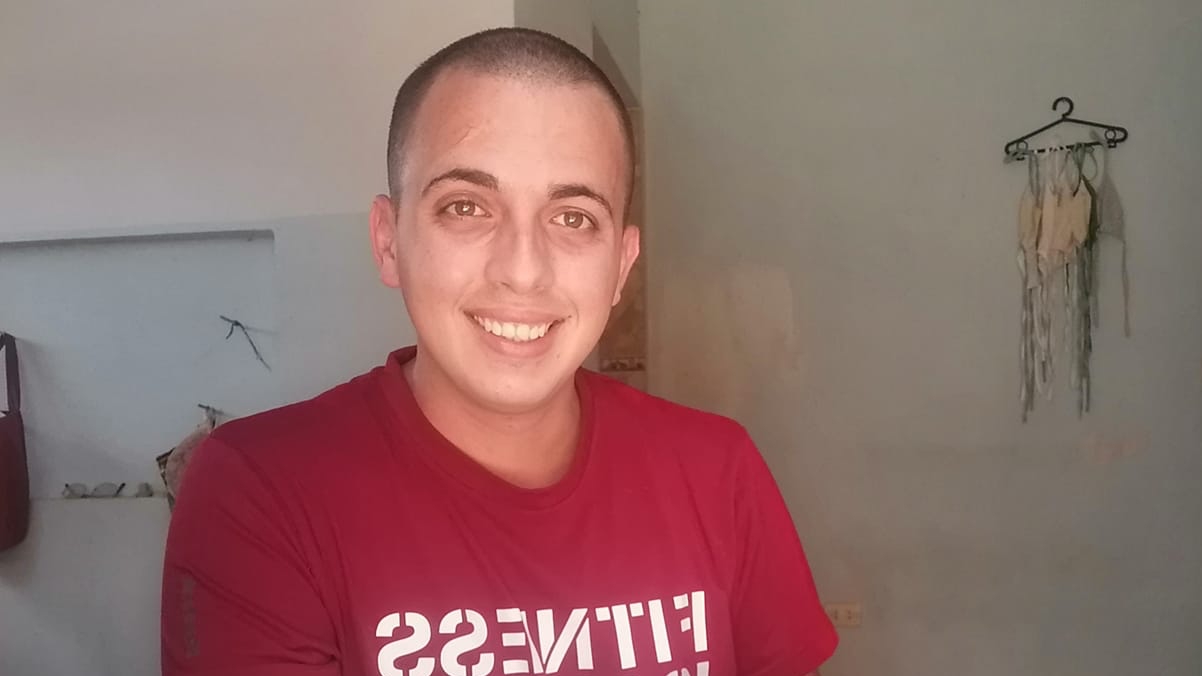Jancel Moreno knew that at any moment State Security would might retaliate for his publications on social media and in the independent medium ADN Cuba. But he never imagined that it would be anonymously, and that the threat would be to divulge intimate images that he sent years ago.
"Years ago, in my immaturity and naivete regarding social media, I sent some stupid pictures to my partners, cyberboyfriends, and others, and I'm sure some exes still keep have of them. But I never thought that they would come back, in an attempt to shut me up and destroy my relationship," Moreno told DIARIO DE CUBA via WhatsApp.
This weekend he received a message similar to those sent to the independent artist Luis Manuel Otero Alcántara, the curator Claudia Genlui, the activist Iliana Hernández and the journalist Maykel González Vivero. The latter has suffered from these threats since 2017.
"I felt exposed. Though I have no Christian notion of shame in this regard, but it was still irritating, because it was a question of exposing me against my will, but it was not a tragedy. The Police undressed me at a station that same year, 2017, and took photos of me. They have an album of mine. I have even told them to go ahead and make it public," recalls González Vivero.
"Trying to exploit my privacy to discourage me is a violation," said Moreno in his statements to DDC, after taking the public complaint on Facebook and talking about it with his boyfriend. "It is even an act of homophobic violence by a patriarchal state, but whether those photos come out or not, I'll always keep on going."
Human rights violation
Threats to publish private photos, and the disclosure of those images against the wishes of those affected, as happened in the case of Otero Alcántara in August of this year, contravene the Universal Declaration of Human Rights, said lawyer Laritza Diversent, Executive Director of the Cubalex Legal Information Center.
Cuban authorities abrogate Article 12 of said declaration, which states that "No one shall be subjected to arbitrary interference with his privacy, family, home or correspondence, nor to attacks upon his honor and reputation. Everyone has the right to the protection of international law against such interference or attacks."
State Security proceeds, however, based on the premise that "you have no private life. In Cuba it doesn't exist. 'I know everything about you.' They own everything, even your life: ‘I know what you do, where you are, who you talk to, who you go out with, where you go, where you walk,’" is the message they send, explained Diversent.
The lawyer noted that the State should guarantee the protection of all Cubans, in accordance with International Law. Instead it violates the right to intimacy, privacy and honor, not only through the publication of intimate images, but also with its constant surveillance of independent activists, journalists and dissidents in their own neighborhoods and family settings.
Cuban legislation only covers the crime of defamation, which involves an attack upon one's honor. "The publication of intimate photos is an attempt to discredit people. It is not only a violation of the right to privacy, but also honor," she observes.
In the case of Iliana Hernández, the regime used photos of her half-naked to allege that she was a prostitute. In Otero Alcántara's, it was to suggest that he had homosexual relationships, Diversent explained.
The Cuban authorities seek to harass individuals so that they will do whatever they want: "so you go away or stop doing what you're doing." In the country the protection of privacy, and even the filing of complaints, are challenges, but Diversent recommends increasing Internet security and submitting complaints, even anonymously, so that the Police's actions are recorded.
"The State should undertake investigations, and this is not difficult, because it has the means, as it knows how to spy with an account name and IP." If the threats are anonymous, however, those affected "should file a complaint because (those responsible) have instruments for espionage," she reiterated.
Jancel Moreno, the most recent victim of this State Security practice, calls it "really ridiculous" that the Government of Cuba uses sensuality and sex to embarrass dissidents. "It is a disgrace, if only for these archaic minds, who hide behind faceless profiles with false names," he said.
Maykel González Vivero, meanwhile, points out that "Castroism has proven to be very prudish, very old-fashioned with these things. And the bodies of gays and women and dissidents were always the most vulnerable of all, exposed to violence, rape, and, finally, state ‘porn-revenge.’"
"Images of our own bodies should not be used to intimidate us. It's what we are."
